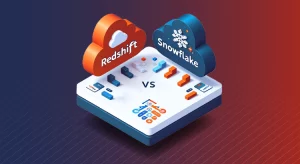
PCI DSS

What is PCI DSS?
PCI DSS stands for Payment Card Industry Data Security Standard. A set of rules that companies must follow to keep credit card data safe. It applies to any business that handles credit cards, regardless of its size. Following PCI DSS helps prevent data breaches and theft of customers’ payment information.
The PCI Security Standards Council manages the DSS requirements. This council includes major credit card brands like Visa, Mastercard, and American Express. They work together to set the security standards that protect cardholders.
Why PCI DSS Matters
In today’s digital world, credit card usage is extremely common. Millions of transactions happen every day, both online and in stores. Strong security is critical when exchanging so much financial data.
Imagine if a hacker broke into a retailer’s payment system and stole thousands of credit card numbers. The cardholders could face fraudulent charges and identity theft. The retailer would lose customer trust and could face major fines or lawsuits. Following security standard helps prevent these nightmare scenarios.
For example, in 2013, Target had a huge data breach that exposed the credit card data of 40 million customers. It cost the company over $200 million. Stronger adherence could have prevented this costly disaster.
The 12 Requirements of PCI DSS
To be PCI DSS compliant, companies must continuously meet 12 core requirements:
- Install and maintain firewalls
- Use secure systems and passwords
- Protect stored cardholder data
- Encrypt data transmissions
- Use and update anti-virus software
- Develop secure systems and applications
- Restrict data access
- Assign unique IDs to those with computer access
- Restrict physical access to data
- Track and monitor access to data
- Regularly test security
- Maintain an information security policy
Let’s look at a few of these more closely:
Protecting Cardholder Data
Companies must protect cardholder data when storing and transmitting. You must encrypt the data using strong cryptography when storing it. Companies also need to regularly scan their systems for unencrypted card numbers.
Restricting Access
Companies must tightly control who can access cardholder data and payment systems. Employers should provide access to those who absolutely need it for their jobs. Even then, we should restrict access to the bare minimum required.
PCI DSS requires assigning a unique ID to each person with access. This makes it easy to track who is accessing what data. You must also limit and monitor physical access to servers and data storage.
Network Security
To prevent data breaches, companies must keep their networks and systems secure. PCI DSS requires properly configured firewalls to block unauthorized access. All systems require up-to-date anti-virus software protection.
Users must change default passwords, as hackers can easily guess them. Maintaining secure, patched software is also key. Hackers exploit known vulnerabilities in outdated software to break into systems.
Regular security testing is another important component of PCI DSS. Companies must perform periodic vulnerability scans and penetration tests. This proactive testing can reveal weaknesses before criminals find and exploit them.
Maintaining Compliance
Becoming PCI DSS compliant is not a one-time task. Companies must continuously monitor and update their security to remain compliant. Documenting all security policies and procedures is key. Employers must regularly train employees on secure practices.
Organizations must validate PCI DSS compliance annually. Smaller companies can do this through a self-assessment questionnaire. Larger companies must have an on-site assessment by a Qualified Security Assessor. You must submit compliance reports and attestations of compliance to the card brands and acquiring banks.
The Cost of Non-Compliance
Failing to comply with PCI DSS is costly in multiple ways. Card brands could fine companies that do not follow customer data rules. The fines range from $5,000 to $100,000 per month. Lawsuits from angry customers can also result.
Even if no breach occurs, the card brands may fine companies that fail to submit compliant reports. These fines can be thousands of dollars per month. Non-compliant companies may even lose the ability to process credit card payments altogether.
In 2019, authorities fined Marriott $24 million for not following security rules, which led to a data breach. Fines and lawsuits are a huge financial risk that compliance helps mitigate.
The Benefits of PCI DSS
While becoming PCI compliant takes effort, it has major benefits. Most importantly, it keeps customers’ valuable financial data secure. This protects your customers and your company’s reputation. Complying with PCI DSS also helps companies avoid costly fines and legal battles.
Being PCI DSS compliant is increasingly important for winning new business. Many companies now require compliance from their vendors. Meeting this standard can be a competitive advantage. It shows your business is serious about security.
Conclusion
PCI DSS is not just a burdensome regulation. A proven framework for keeping payment data secure. In the age of rampant cyber crime, rigorous security is a necessity. Achieving and maintaining compliance is well worth the effort.
